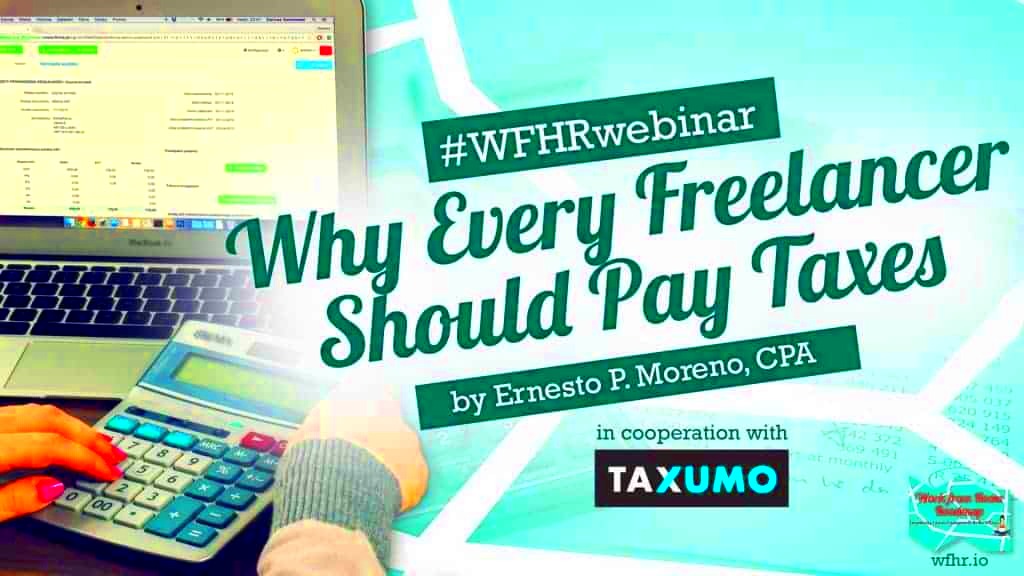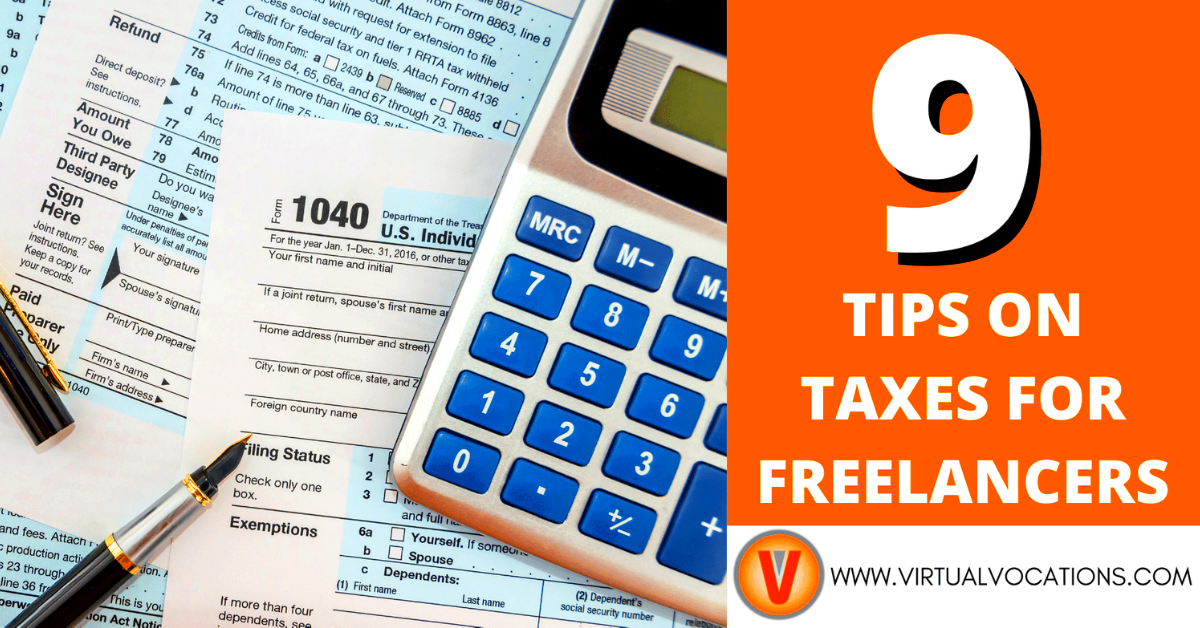Taxation is one of the responsibilities that freelancers have; the freedom they get in their career choice does not mean that they can’t be taxed like anyone else. Unlike traditional employees, freelancers don’t have withholding tax deducted from their paychecks. This way, it is important to understand your obligations regarding taxes to avoid any surprises later on.
Taxes at both federal and state levels must be paid by the freelancer. In addition, self-employment tax applies for social security and Medicare. Some salient essential points include:
- Self-Employment Tax: This tax is typically around 15.3%, which includes 12.4% for Social Security and 2.9% for Medicare.
- Quarterly Payments: Freelancers often need to make estimated quarterly tax payments to the IRS and state authorities.
- Record Keeping: Maintain accurate records of your income and expenses to support your tax filings.
Why Freelancers Need to Save for Taxes

The significance of saving for taxes for freelancers cannot be overstated. No matter how much you earn, if you don’t plan ahead when it comes to taxes, you might end up in a tight situation during tax season. Thus, it is vital to save some cash for taxes:
- Avoiding Penalties: If you don’t pay enough taxes throughout the year, you could face penalties and interest from the IRS.
- Financial Peace of Mind: Knowing you have funds set aside can reduce stress when it’s time to pay your taxes.
- Planning for Future Expenses: When you save for taxes, you can better manage your finances and plan for future expenses.
Also Read This: How to Cancel a Fiverr Order
Calculating Your Tax Rate

As a freelancer, calculating your tax rate might feel overwhelming however, the process could be simple if you know the right approach. To determine your tax rate:
- Identify Your Income: Start by determining your total income from freelancing. This includes all payments received for your services.
- Deduct Business Expenses: Subtract any allowable business expenses, such as software, equipment, and travel costs. This gives you your taxable income.
- Use the IRS Tax Brackets: Check the current tax brackets on the IRS website. Your taxable income will determine your tax rate based on these brackets.
To help you understand the federal tax brackets that are in place for 2024, we have put together this easy-to-read table:
| Tax Rate | Income Range |
|---|---|
| 10% | $0 - $10,275 |
| 12% | $10,276 - $41,775 |
| 22% | $41,776 - $89,075 |
| 24% | $89,076 - $170,050 |
| 32% | $170,051 - $215,950 |
| 35% | $215,951 - $539,900 |
| 37% | Over $539,901 |
If you know your tax rate, you will be able to prepare for taxes over the year and save some money on taxes in advance.
Also Read This: Where to Find Buyers Request on Fiverr
Determining How Much to Set Aside
As an independent contractor, determining how much money you need to set aside for taxes is crucial. The ever-changing nature of income often leads people to assume their tax obligations are not that high. Thus so that you do not get caught off guard, we will go ahead and look at the procedure of assessing what should be kept aside as taxation savings.
The first thing you need to do is determine how much money you earn in a year. This will serve as your starting point. After that, think about these things:
- Self-Employment Tax: Remember to account for self-employment tax, which is about 15.3% of your net earnings.
- Income Tax Bracket: Check your tax bracket based on your taxable income. This will help you gauge how much you owe in income tax.
- State Taxes: Don’t forget state income taxes. Research your state’s tax rates as they can vary significantly.
One easy way of figuring out how much one should be saving is:
(Estimated Annual Income x Tax Rate) / 4
Through this route, it becomes possible to partition your whole taxation tax equity into sections that are paid out each quarter. You will be adequately prepared when the time come for tax season if you avoid splurging unnecessary expenses and choose to save constantly.
Also Read This: What is Logo Transparency on Fiverr?
Choosing the Right Savings Method
Once you know the amount that should be withheld for taxation, the subsequent step is determining the best mode of saving. Separating your taxation savings from your expenditure cash aids in averting the impulse of accessing such funds. Some techniques you might think about include:
- Separate Savings Account: Open a dedicated high-yield savings account for your tax savings. This keeps the money separate and can earn a bit of interest.
- Automated Transfers: Set up automatic transfers to your savings account every time you get paid. This makes saving easier and more consistent.
- Tax-Saving Apps: Consider using financial apps designed for freelancers that help track income and automatically set aside taxes.
The aim is always to ensure that saving becomes simple and easier through any method employed. Therefore, conduct periodical evaluations of your savings to confirm that you are aligning to your taxation objectives.
Also Read This: How to Write a Review on Fiverr
Common Tax Deductions for Freelancers
Freelancers get to enjoy the privilege of filing for different tax deductions that can greatly decrease their taxable income. Knowing about these deductions can help you save money and reduce your tax load. Below are some frequently used deductions to consider:
- Home Office Deduction: If you work from home, you can deduct expenses related to your home office, including rent, utilities, and internet.
- Business Supplies: Any supplies needed for your freelance work, like computers, software, and office supplies, can be deducted.
- Travel Expenses: If you travel for work, you can deduct transportation, lodging, and meals related to your business activities.
- Health Insurance Premiums: Freelancers can deduct premiums for health insurance for themselves and their families.
Keeping an impeccable record of everything you have spent is essential. You may want to use accounting software as well as specific spreadsheets for compiling your data during the entire year. The following are some common deductions summarized in a small table:
| Deductions | Examples |
|---|---|
| Home Office | Rent, utilities |
| Supplies | Computers, software |
| Travel | Transportation, lodging |
| Health Insurance | Premiums paid |
Taking advantage of these reductions can help you retain some of your hard-earned cash within yourself.
Also Read This: Adding Freelance Experience to Your LinkedIn Profile
What to Do When Tax Time Approaches
Tax time is drawing near and this is both an exhilarating and an intimidating moment for many freelancers. This could be a really stressful moment but with proper planning, you can sail through it smoothly. By knowing what to do in days leading up to the deadline, you will prevent unnecessary rush in the last minute and keep all your documents well organized.
At first, combine every single one of your documents. Here are some important things that you should have:
- Income Statements: Collect invoices and payment records from all your clients.
- Expense Receipts: Gather receipts for all business-related expenses, including travel, supplies, and home office costs.
- Tax Forms: If applicable, obtain any 1099 forms from clients or financial institutions.
Following are certain steps to consider:
- Choose a Filing Method: Decide if you’ll file your taxes yourself using software or hire a tax professional for assistance.
- Estimate Your Tax Liability: Use your gathered documents to estimate how much you owe to avoid surprises.
- Set a Deadline: Aim to complete your tax return a few days before the actual deadline. This gives you time to address any issues that may arise.
If you take these measures, you can confidently walk into tax season knowing that everything is in its rightful place.
Also Read This: What You Need to Know About Freelance Digital Marketing
Tips for Staying Organized Throughout the Year
Freelancers must stay organized, especially regarding their taxes. Good organization lets you keep track of your income as well as your expenditures which lessen the strain during tax time. Here are some useful tips to help you remain organized throughout the year:
- Keep Digital Records: Use cloud storage or accounting software to keep digital copies of invoices, receipts, and tax documents.
- Monthly Reviews: Set aside time each month to review your income and expenses. This practice helps you stay aware of your financial situation.
- Use a Dedicated Bank Account: Consider opening a separate bank account for your freelance income. This makes it easier to track money and simplifies accounting.
- Track Mileage: If you drive for work, keep a detailed log of your mileage. Many apps can help you track this automatically.
If you do it all year round, when the tax season comes, you will not waste time or feel any stress at all. This is because a small degree of planning can assist you with your financial matters.
Also Read This: How to Buy Fiverr Stock: A Step-by-Step Guide
Frequently Asked Questions
Freelancers often have a lot of questions, especially during tax season. The following are some frequent concerns and their solutions to eliminate any uncertainties you might have:
- Do I need to file taxes if I earn less than $600? Yes, freelancers must report all income, regardless of the amount. Even if a client doesn’t provide a 1099 form, you still need to report that income.
- What if I can’t pay my taxes on time? If you’re unable to pay your taxes by the deadline, file your return anyway. You can apply for a payment plan with the IRS to avoid penalties.
- Can I deduct my home office expenses? Yes, if you use a portion of your home regularly and exclusively for business, you can claim a home office deduction.
- What records should I keep? Maintain records of all income, business expenses, and tax documents for at least three years in case of an audit.
In case your inquiries or reservations persist, its advisable to see a professional expert in taxation for verification that everything is okay.
Conclusion
Conclusively, freelancing and managing taxes need preparations prior ways of preparation. To sail through confidently during tax seasons, one should be aware of tax obligations as well as saving for them correctly besides keeping everything ordered within the year. In addition, one should take advantage of the diverse deductions that they have access to; otherwise seeking professional assistance when required is an option too not to be dismissed. Keep in mind that timely planning followed by active control will greatly lessen financial burdens upon you. As such enjoy freedom accompanying freelancing while fulfilling tax duties leading you towards a peaceful and profitable filing period with reduced anxiety levels.




